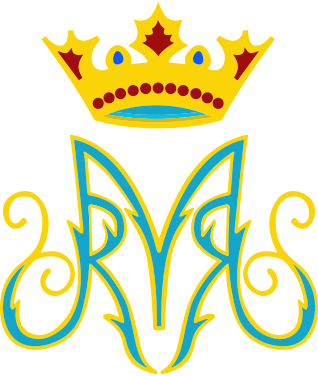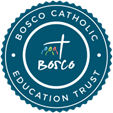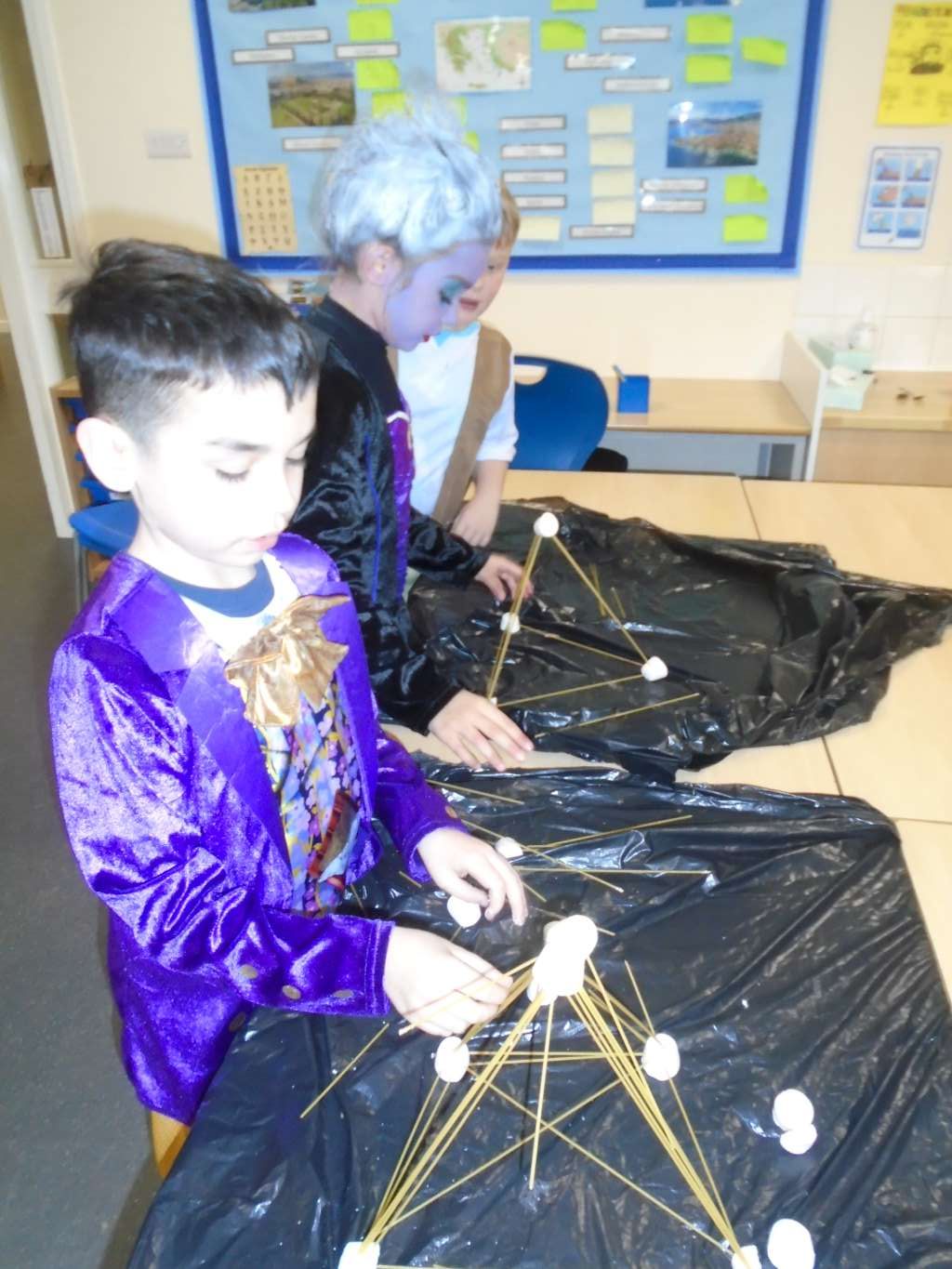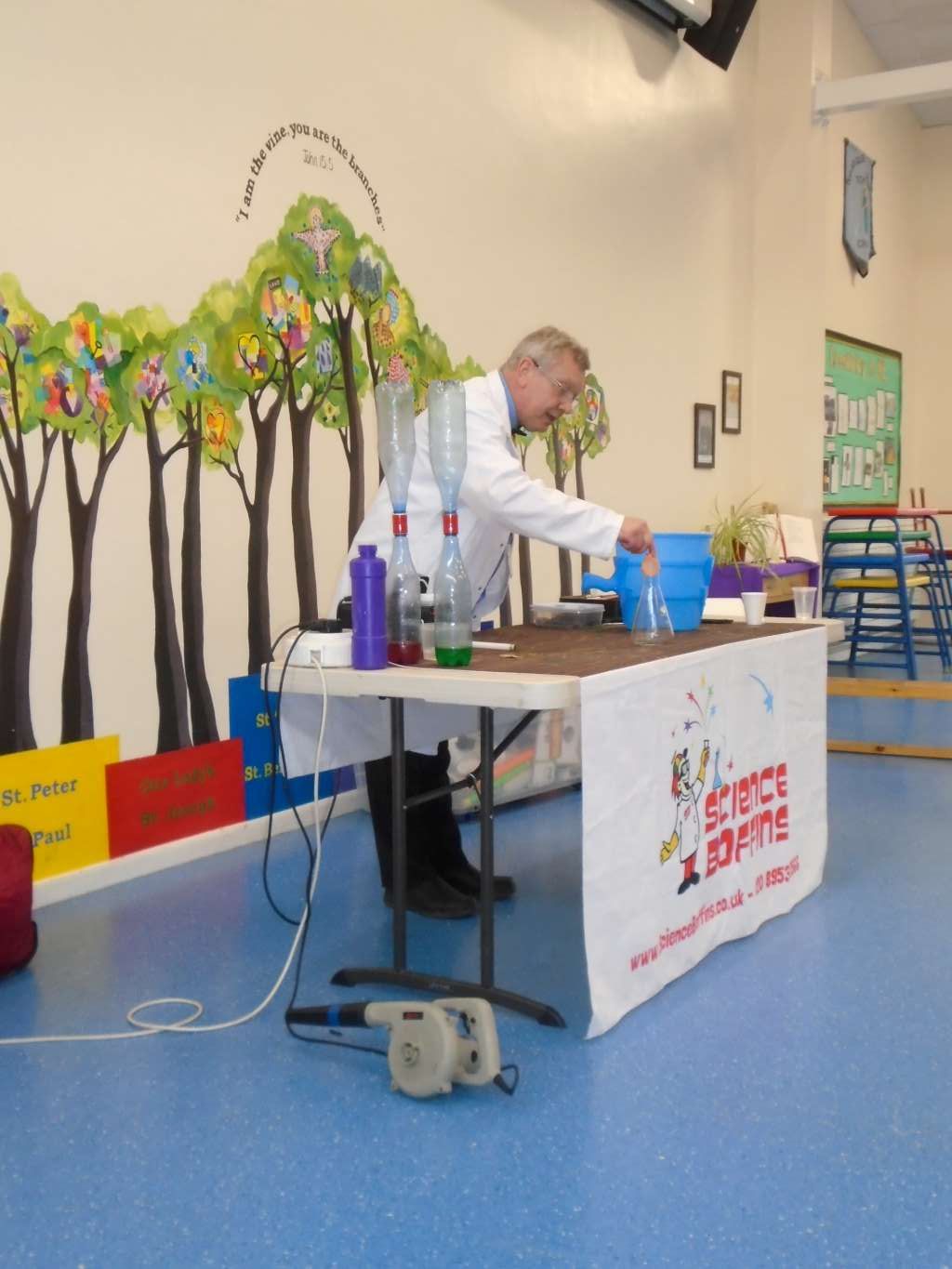Science
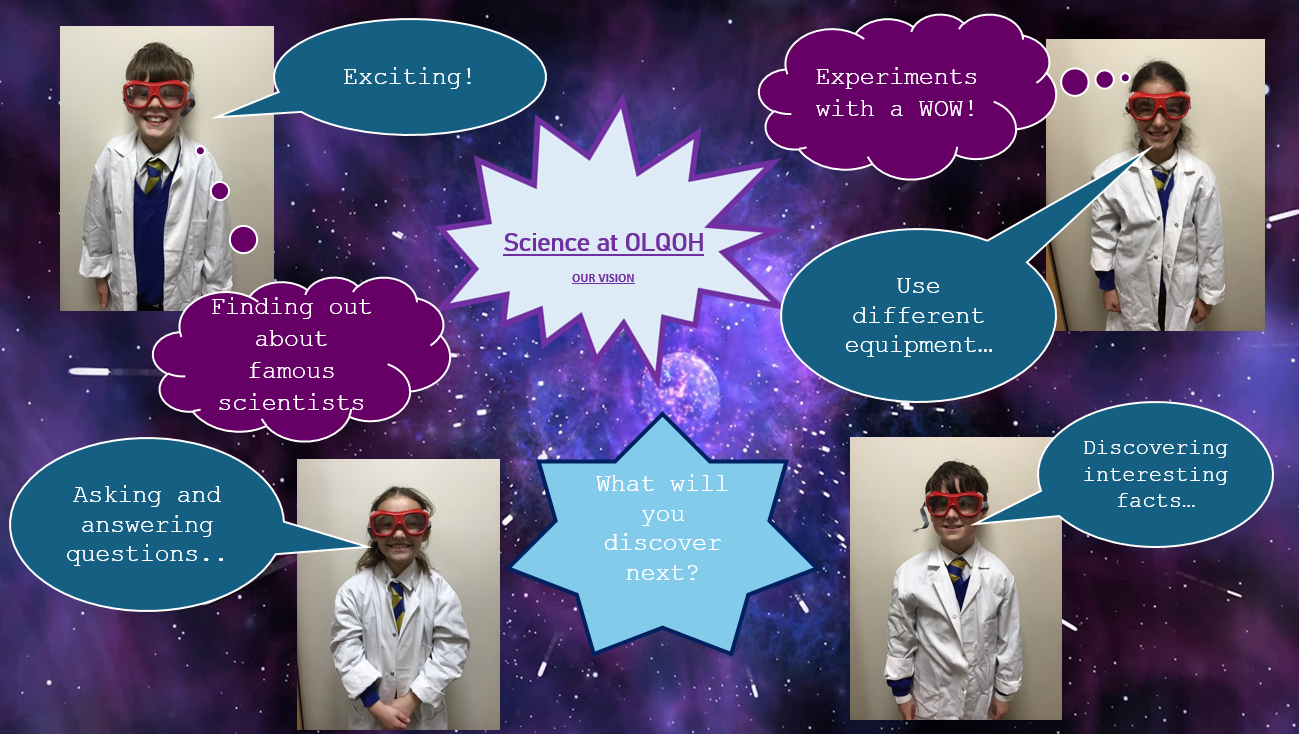
Our updated vision for science has been developed through the Primary Science Quality Mark and through discussions with pupils, staff and governors:
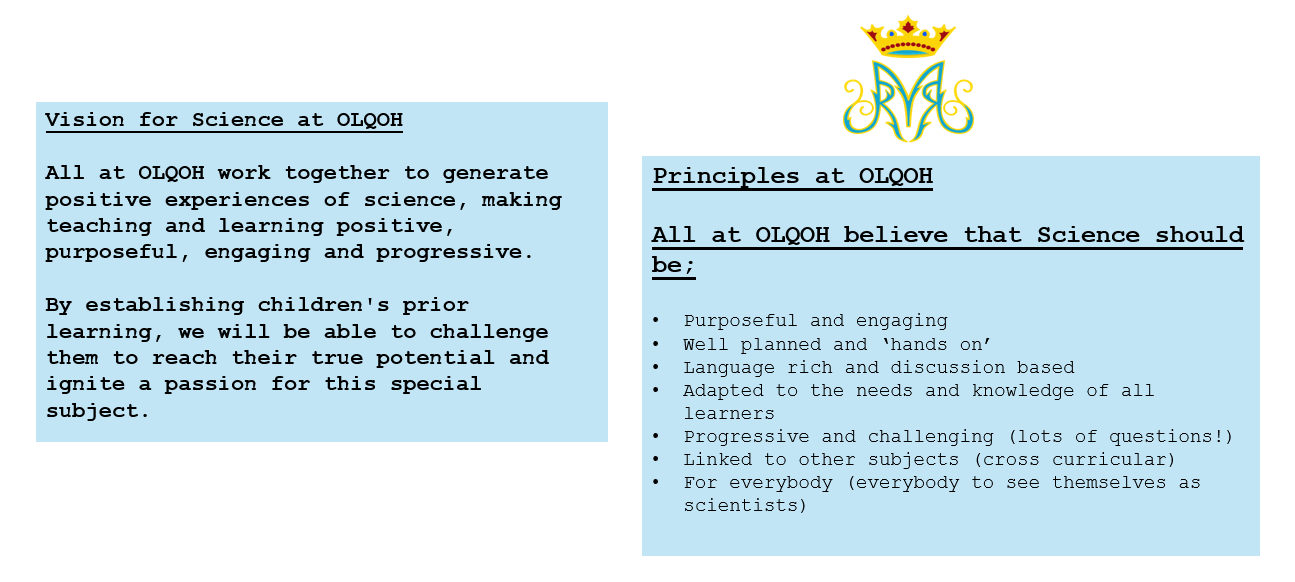
Through practical activities, learners at OLQOH are able to develop their investigative skills and as a result this encourages them to have a desire to find out about the world around them. At Our Lady’s, we plan opportunities for our learners to develop their scientific knowledge through carefully planned exciting Science opportunities. Science sessions are taught both discretely and where possible with cross-curricular links. These sessions are enhanced by visits and a range of enrichment opportunities.
Supporting learners to develop an understanding of the process and methods of Science by providing a range of scientific enquiries, investigations and questions to help them explore the world around them. We support our learner’s curiosity by encouraging questions and opportunities for owe and wonder. '
Our Knowledge and Skills document highlights the progression in disciplinary (working scientifically) and substantive (knowledge) areas of learning.
National Curriculum Aims
The national curriculum for science aims to ensure that all pupils:
- develop scientific knowledge and conceptual understanding through the specific disciplines of biology, chemistry and physics
- develop understanding of the nature, processes and methods of science through different types of science enquiries that help them to answer scientific questions about the world around them
- are equipped with the scientific knowledge required to understand the uses and implications of science, today and for the future
Our science curriculum is shaped by White Rose Science. This uses a “small steps” approach to science teaching, builds from EYFS and follows the national curriculum for science for years 1 - 6. The science topics are designed to develop interest and awareness as well as knowledge of the physical world.
The Reception science scheme covers the DfE statutory framework of the EYFS and the Educational Programme for Understanding the World, specifically looking at The Natural World. The scheme of learning is called Reception Science to allow for consistency across school and because not all Understanding the World and The Natural World is scientific content.
The scheme acknowledges the proportion of the curriculum that is given to Understanding the World and subsequently The Natural World. The number of adult-led activities and continuous provision ideas reflect this weighting and allows us to deliver a curriculum that embeds scientific thinking and talk. The scheme supports hands-on practical activities throughout. Key books and rhymes are embedded within the science scheme.
From year 1 up to year 6, we continue to develop pupils’ scientific vocabulary, creating opportunities for repeated engagement and use over time. Science lessons begin with an activity to recap previous learning and aim to build awe and wonder to develop thinking and scientific enquiry. Children are exposed to a range of tasks in both key stages (linking to Explorify) such as ‘odd one out’ or ‘positive/negative/interesting’ to spark debate and encourage children to verbalise their scientific thinking. Learning in Science is conducted through enquiry where ideas are valued and where there is ample opportunity for practical investigation. As science work is often carried out in groups, the children are enhancing essential teamwork skills. They benefit from the power of dialogue, talking to their friends and listening to their ideas (working collaboratively).
For Key Stage One, the focus is to enable pupils to experience and observe the world around them. Following on from their time in Early Years Foundation Stage learners need time to deepen prior learning and engage in first-hand experiences and begin to use simple scientific language. During their time in Lower Key Stage Two, the emphasis is around learners having opportunities to broaden their scientific view of the world around them. Learners are encouraged to talk, test and make links. Finally, in Upper Key Stage Two, the main focus is to allow learners time to deepen and develop their understanding of a range of scientific ideas. Learners are encouraged to select the most appropriate way to answer and record their scientific findings.
Primary Science Quality Mark 2024-2028
OLQOH is currently renewing the Primary Quality Science Mark and will submit final evidence in June 2025.
